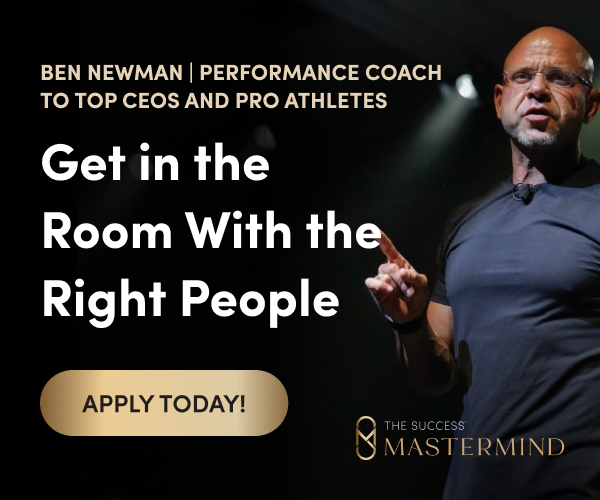For many young professionals, attending a networking event sounds about as fun as going to the dentist. Necessary? Yes. Enjoyable? Not so much. Attitudes like this are understandable—the pressure is high, you’re not sure who to approach first and conversations can range from awkward to downright embarrassing—but they’re also shortsighted.
Networking remains one of the most effective ways to find a new job, particularly when done in person. Anecdotally speaking, connecting with others via networking events has been integral to building my business. I’ve formed partnerships, gained affiliates and won clients all directly because of networking.
Of course, you already know that networking is valuable. What’s harder to understand is that it doesn’t have to be miserable. When you reframe your thinking around networking, it stops being a necessary evil and starts becoming an asset in building your personal and professional brand. Here are my top two tips for accomplishing this:
1. Illuminate your “why.”
I empathize with those who dread networking because I used to struggle with it myself. When I first started my business, I was desperate to make productive connections and gain some traction. But I often left events feeling frustrated because I genuinely didn’t know how to get beyond the compulsory “What do you do?” exchange.
It’s not that I was shy. In fact, I was eager to make introductions, shake hands and dive into meaningful conversations. But after a minute or two of chatting, I’d see the other person’s eyes glaze over, a clear sign that my personal and professional pitch was falling flat. I quickly realized I needed to reframe how I introduced myself and my book editing company.
Instead of telling people who I was and what I did, I began illuminating why I do what I do. For instance: I own a book editing business because I worked in book publishing, so it’s an industry I’m well versed in. I arrived at publishing because I believe books enrich the world and are valuable because they help us understand new ideas, connect with others and grow personally.
Now, when I’m networking with people who aren’t in my industry and I’m asked what I do, I say, “I help authors craft books that earn a special place in the hearts and minds of their readers.” It’s a more accurate description of what I do, and it’s a lot more interesting. By getting to the root of your “why,” you find a purpose that speaks to more people, even those who have nothing to do with your audience.
When I’m networking inside my industry, I use a slightly different approach, introducing myself by highlighting the value I bring to my potential clients. Typically, that looks something like this: “I work with inspiring authors who want to learn how to craft books that realize their ambitious visions.” That way, industry insiders discover both what I do and what value I deliver in one strong statement.
Acing the introduction is a strategy that has proven very successful for me. With the right opening, you can get people’s attention and spark their curiosity.
2. Deliver the unexpected.
A great opening line can lead directly to a vibrant professional network—if you know how to continue the conversation from there. For networking to be truly valuable, after all, you need to turn an introduction into a follow-up meeting.
There are multiple ways to help the conversation flow organically, but I think the best and most underused way to do this is by using a book. If you want to network with someone specifically, offer them a personalized book recommendation. Ideally, you’ll have a copy to gift, but an enticing (and quick) description will work as well.
This strategy is successful for several reasons. First, it’s unexpected. People rarely anticipate leaving a networking event with anything except sales swag or business cards. Furthermore, offering people a physical book creates a much stronger association than any sales pitch ever will. Doing so will establish you as knowledgeable and well versed in their area of interest, which makes you a much more interesting person. With one gesture, you become the source of a book they can’t wait to read.
That said, for this strategy to work, you need to prepare. Know the people you want to meet at a networking event, and do your research. What’s their area of expertise? Which topics do they talk about? What are their personal interests? Consider which books you’ve read that would appeal to them. That could be an overlooked book on sales team psychology or an exemplary memoir of a Navy SEAL.
When you deliver the gift, add a personal touch, such as a note on the inside cover explaining why you think they’ll love the book. Doing so further establishes that one-on-one connection.
I’ve been on the receiving end of this kind of connection a few times, and each time, the book was incredibly valuable to me. To receive a book that delivers an impactful insight into your business or inspires you is priceless. You can bet I prioritize gift givers’ emails and look for ways to help them.
If you’re dreading the next networking event, take a look at your bookshelf. You might not find a volume you want to pass along, but you may remember an idea you want to bring up. Either way, you stop relying on charisma and start relying on intelligence and aptitude instead. That’s exactly what makes a lasting impression.
Networking may not always be the easiest or the most fun activity for young professionals, but it doesn’t have to be as painful as your yearly dental checkup. By understanding and articulating your “why” and making a connection point that opens the door for more meaningful conversations, you’ll make better connections that propel your career forward.
This article was published in May 2018 and has been updated. Photo by Rawpixel.com/Shutterstock







